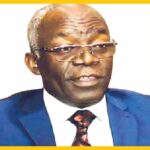The Federal Government has called on stakeholders in the National Council on Education (NCE) to support the reversal of the policy mandating the use of mother tongue as the language of instruction from Primary One to Six.
Minister of State for Education, Prof. Suwaiba Ahmad, made this appeal during the 2025 Extraordinary National Council on Education Meeting held in Abuja on Thursday.
Ahmad also proposed a review of the National Policy on Education to limit the use of mother tongue to Early Childhood Care Development and Education (ECCDE) and Primary One, instead of extending it throughout primary school.
Previous Implementation and Challenges
According to the News Agency of Nigeria (NAN), the NCE had previously recommended that pupils be taught in the dominant language of their immediate environment for the first three years of primary school. This initiative was aimed at preserving indigenous languages and improving foundational learning.
The Federal Executive Council had approved the policy’s implementation on November 30, 2022. However, Ahmad highlighted several obstacles that have hindered its execution, particularly in urban and multilingual communities.
“Inconsistencies in implementation, particularly in cities, have posed a challenge. Many schools begin instruction in English from the outset, contradicting the policy,” she explained.
She further noted that with Nigeria having over 500 languages, selecting a single dominant language for instruction in diverse communities remains a significant hurdle. Additionally, the scarcity of instructional materials and textbooks in indigenous languages has made implementation difficult.
Given these challenges, Ahmad emphasized the need for a policy review to address these issues and propose necessary adjustments.
Extending Basic Education to 12 Years
Minister of Education, Dr. Tunji Alausa, also advocated for the extension of basic education to include secondary schooling, increasing the duration to 12 years.
“This aligns with global best practices and Sustainable Development Goal 4 (SDG4), which promotes inclusive and equitable quality education for all,” Alausa stated.
He added that integrating secondary education into the basic education framework would enhance access to learning, improve retention rates, and reduce dropouts by eliminating financial and systemic obstacles that prevent students from completing secondary school.
Technical and Vocational Education Reform
Alausa further emphasized the need to restructure Federal Science and Technical Colleges (FSTCs) into Federal Technical Colleges (FTCs) to improve vocational education.
“Technical education provides young people with practical skills and a deeper understanding of evolving technology. This transformation is essential to aligning our education system with economic and technological demands,” he said.
He also highlighted the urgent need to tackle youth unemployment, noting that over 60% of Nigeria’s population is under the age of 30. To address this, the government has introduced the Technical and Vocational Education and Training (TVET) initiative, aimed at enhancing vocational education and aligning graduates’ skills with industry demands.
Standardizing Tertiary Admission Age
In addition, Alausa advocated for incorporating a minimum admission age of 16 for tertiary institutions into the NCE framework to create a uniform standard for higher education entry requirements.
The meeting brought together education commissioners from all 36 states and the Federal Capital Territory (FCT), along with agency heads, international organizations, and the Deputy Governor of Kano State.
NigeriaEducation, #NationalCouncilOnEducation, #MotherTonguePolicy, #EducationReform, #BasicEducation, #MultilingualEducation, #TechnicalEducation, #VocationalTraining, #SDG4, #EducationPolicy, #TertiaryEducation, #TVET, #YouthUnemployment, #InstructionalLanguage, #EducationalDevelopment



